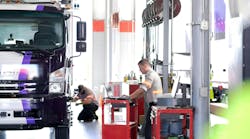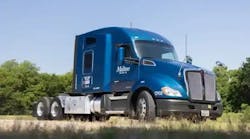However, he told Fleet Owner that positive economic growth for leasing and trucking should return in the second half of 2003.
Part of the reason for the near-term troubles stems from what's shaping up to be only an "average" holiday sales season this year, coupled with the economic uncertainty posed by the possibility of another terrorist attack and the potential for war against Iraq.
Another factor is the introduction of new low-emission diesel engines, Ford said.
"We're only beginning to change over to these new engines and we still have some concerns with them in terms of warranty issues, their residual value, and their maintenance and operating costs," he explained. "It's hard to write up a five-year lease agreement, which is the typical term for this industry, because we don't know those costs yet."
However, Ford believes that by the second half of '03, lessors and the trucking industry as a whole will have a better handle on the costs associated with the post-Oct. 1 engines, allowing business patterns to return to normal. He also expects that demand for new equipment will kick back into high gear by mid-'03.
In the short term, Ford noted that leasing companies have seen a sharp rise in contract maintenance deals with for-hire fleets. That's largely because for-hire carriers have attempted to extend vehicle ownership to avoid buying new low-emission engines and compensating for low residual values on their equipment.
"Major truck fleets are running equipment longer and having more maintenance issues, so they are contracting out for services," Ford said. "Outsourced maintenance deals are driving a lot of business for us right now."


